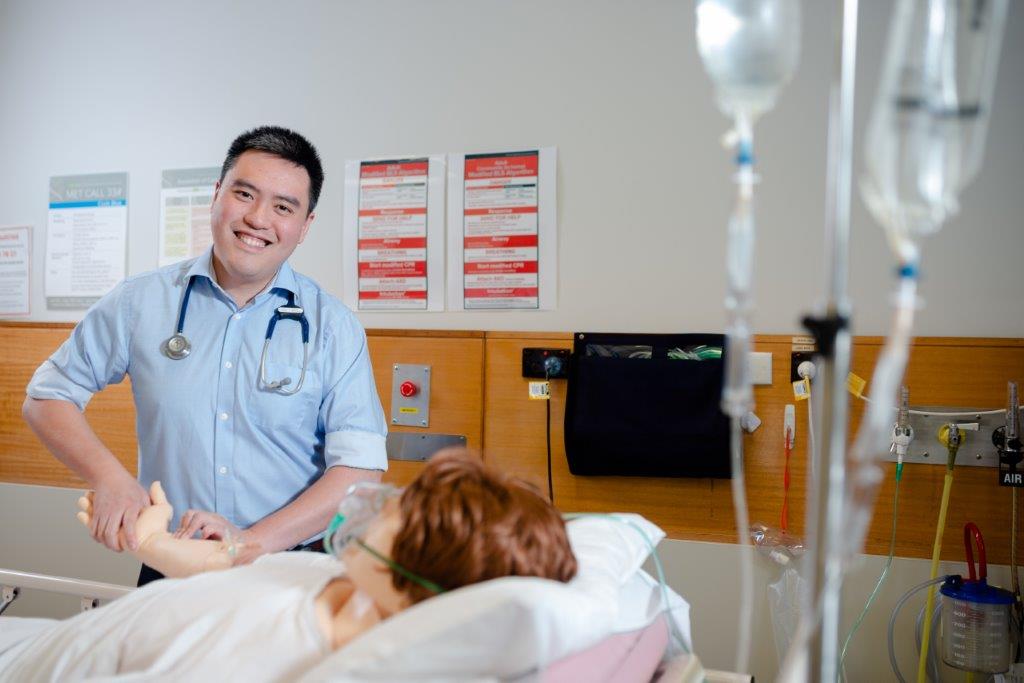
UPDATE: view 2023 OSCE information
The 2022 OSCEs will be held on:
OSCE Day 1: Thursday 24 November 2022 (SA+NT)
OSCE Day 2: Friday 25 November 2022 (SA only)
Supplementary OSCE: Monday 12 December 2022 (SA+NT)
[Year 3 Exam Board Meeting: Thursday, 8 December 2022]
We value your contribution to case writing and examination. Please email mdassessment@flinders.edu.au to become involved. The format for both the OSCE and the supplementary OSCE will be the same as last year (summarised below).
A recap of our biggest ever OSCE in 2021
Our MD Year 3 Objective Structured Clinical Examination (OSCE) ran on 18 and 19 November 2021.
This was the biggest OSCE to date for the MD Program, with the examination of 206 students over 2 days in both Adelaide and Darwin. It was a very collaborative process involving clinical disciplines, academic and professional staff from across the Flinders footprint – NT, MD Rural Stream (MDRS) and Bedford Park.
Despite the large number of students and examiners, we started examinations at 9am and finished by 4pm each day. This feat would not have been possible without the incredible work of our professional staff in the planning and running of the OSCE including staff in MDRS and NT along with the Education Resource Team, Technical Services Team, Clinician Support Team and Assessment Team at Bedford Park. A lot of professional staff also took the roles of invigilators during the assessments (some even filled in as patients at short notice!). We would like to formally thank them for their hard work to deliver this.
The OSCE format changed in 2020 to better reflect our curriculum and more closely align with AMC standards and procedures. All the cases focus on undifferentiated patient presentations that assess students’ clinical processes that might not be easily or readily assessed in other forms of assessment (such as Progress Test or miniCEX).
We had a wide range of contributors for case writers and examiners from Medicine, Surgery, Psychiatry, Obstetrics and Gynaecology, Intensive Care, Emergency Medicine, Anaesthesia, General Practice, and Paediatrics, to keep the stations balanced and aligned with our curriculum.
When the call went out for cases earlier this year, we were very pleasantly surprised by both the response rate and volume by many disciplines including our Northern Territory colleagues.
We would like to acknowledge and thank all those who contributed to the exam and provided feedback about their OSCE station and experience.
Dr Michal Wozniak
Chair, OSCE Working Group


